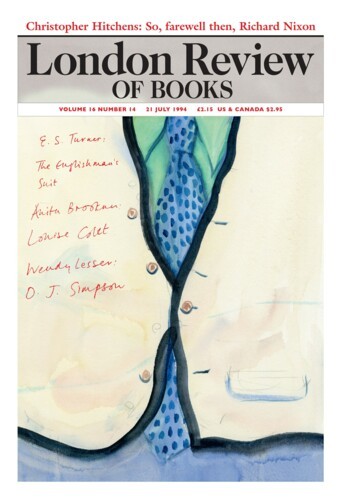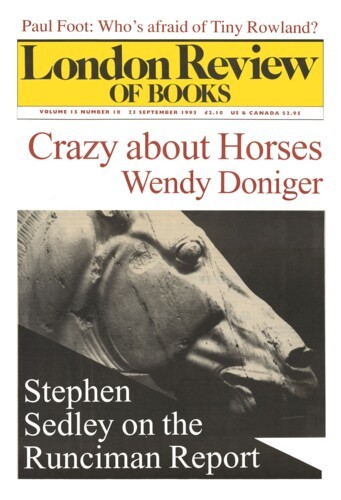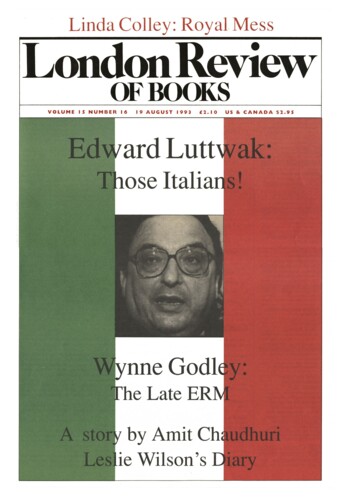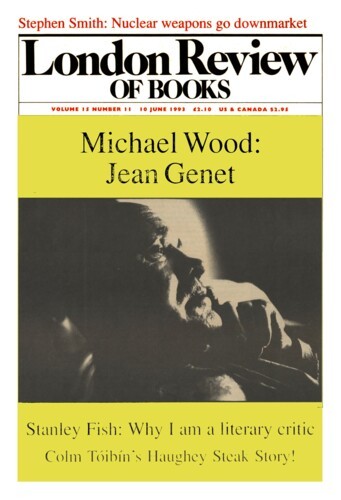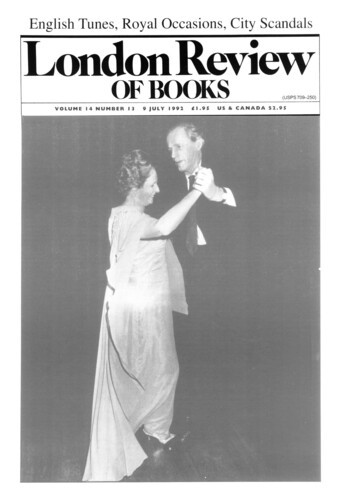On holiday
Amit Chaudhuri, 21 July 1994
Naguib Mahfouz made his name with his trilogy of Cairo life – Palace Walk, Palace of Desire and Sugar Street – first published in Arabic in the late Fifties. At first glance, The Harafish, which was originally published in 1977, bears little resemblance to, say, Palace Walk. The latter is a story of a family in an ‘alley’ in Cairo in the first half of the 20th century, and is told in a straightforward chronological manner that seems to owe something to the 19th-century European novel. The Harafish is more rambling, less realistic (without being ‘magical’), telling the mythic story of the descendants of the heroic Ashur-al-Nagi and covering births, weddings, murders and entire generations, sometimes in the course of a chapter. It is set in a time that for the most part appears to be medieval, given its plagues, dervishes and clan chiefs, but occasionally edges towards the modern with the appearance, for example, of a police inspector.’
